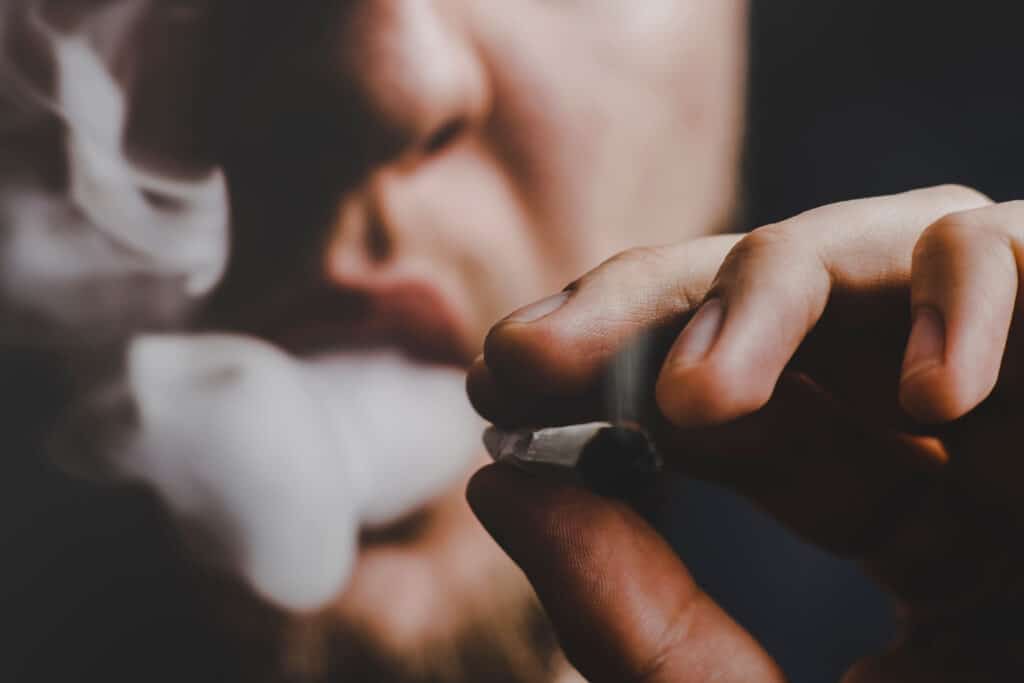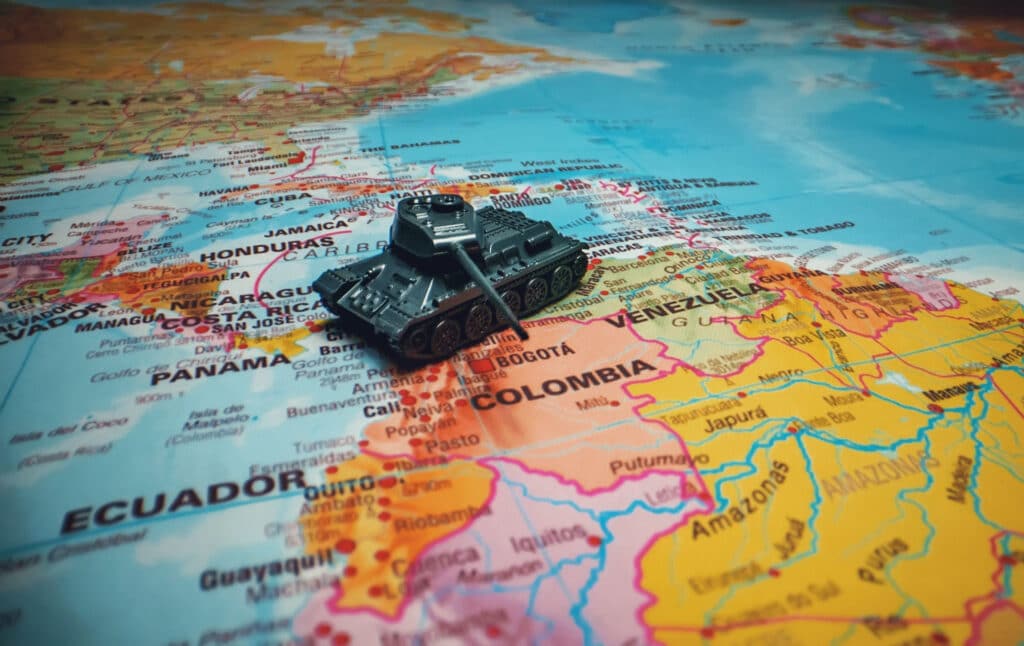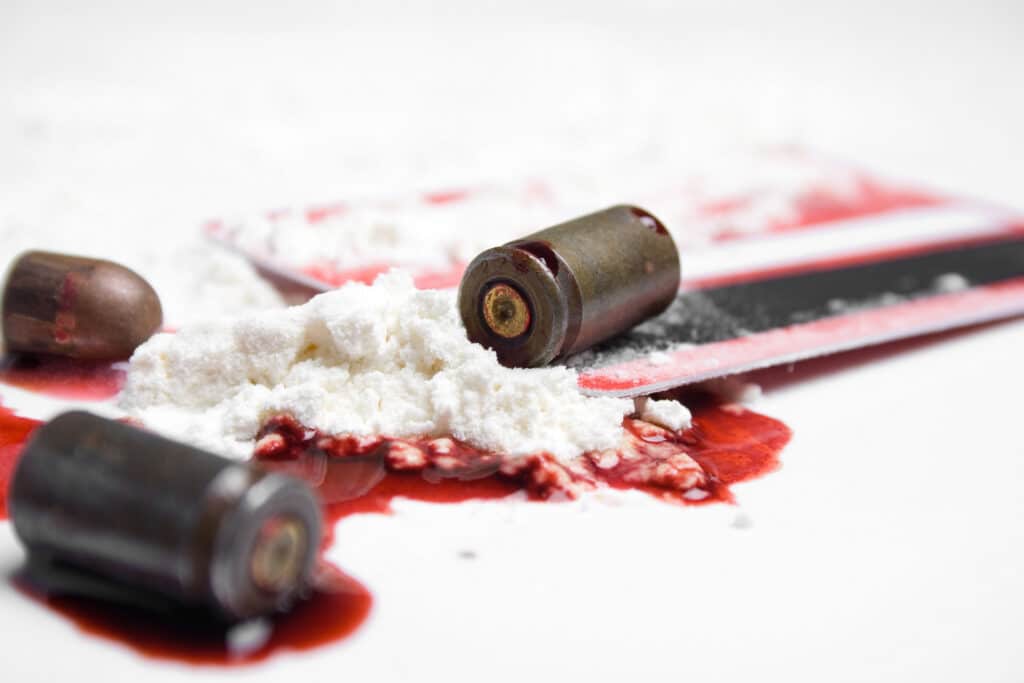After a recent visit to New York, and smelling weed in the streets; Colombia President calls out the US for being hypocritical over drug war, while introducing new drug policy.
What did Colombia’s President say
This current story is related to the release of a new drug plan by Colombian President Gustavo Petro. Colombia and the US have a strained history, mainly because of the war on drugs which the US waged, not on its own people, but on Colombia; an entirely different country with its own laws. Now, as the tide of public opinion changes concerning drugs like marijuana, Petro is going hard at the US for its hypocritical behavior about the ever-present drug war.
Petro spoke of a recent trip to New York, in which he could smell marijuana in the streets of the city. While he didn’t technically have a problem with this, he commented that it was “enormous hypocrisy” to allow such sales in a country that not only holds cannabis as illegal; but which killed so many Colombians in a useless war on drugs, just to allow legal sales of its own.
In a recent speech, with translation through Marijuana Moment, Petro got to the heart of the idea of weed; going from a crop to wage wars over, to one being sold which earns the government profit via taxes. He said, “Marijuana is sold today in Times Square. It smelled on all the streets, all the way around the corner, and they sold it…like any other product. I suppose they charge taxes and that New York City or the state of New York lives partially from them.”

He continued, speaking about the damage of this so-called war, “That’s where the war on drugs began. How many people have been imprisoned? How many people have died? Because undoubtedly illegality brought violence.”
This is interesting because the US rarely answers for its bad behavior; particularly what its done in countries like Colombia. Whereas the US tore apart Colombia over drugs like cocaine and marijuana; it likes to ignore this now. No apology made, no damages paid. The US acts like it didn’t do anything, even as it still pressures countries like Colombia to end drug trades, and even as it hypocritically allows the taxation of products that it has gone into other countries to kill people over.
Petro’s new drug policy plan
The whole reason this statement on US hypocritical behavior concerning the drug war, came out; is because Petro is introducing a new plan for Colombia. And one for which he probably doesn’t want the US trying to intervene in any way. By so publicly calling the US out for its hypocrisy, he might even be able to shame the US into trying to get involved.
Petro’s new plan would seek to reduce the cocaine production in Colombia by 43%. This is separate from a coca industry, however. In conjunction, Petro wants to legalize an adult-use market for cannabis, as well as promote the coca leaf for non-psychoactive purposes. The plan specifically targets limiting the environmental issues of drug production and trafficking, and to reduce drug trade violence, in part by lessening criminal enforcement.
The plan is meant to help with the mass poverty of the country, and the continued cycle that exists for families in the industry; as well as to minimize criminal prosecution for these families which produce drugs. The hope is that this also reduces the general violence from these trades. Said Petro in his October 3rd speech, “We want a prosperous peasant economy that allows—as I said in my campaign speeches—any daughter or any son of the peasant to study medicine, mathematics or philosophy. That is the goal.”
In the last couple years, Colombia attempted to pass a cannabis legalization, and a cocaine legalization bill; neither went through. The latter would have required the government to buy all crops, essentially ending the more expensive crop elimination programs. If this sounds impossible, consider that both Bolivia and Peru have legal coca industries, and the latter allows legal cocaine up to two grams. These two countries rank as two of the lower crime-rate countries of Latin America. Petro’s current plan involves a two-year program to initiate legal cannabis. In July, the country’s legislature approved this reform.

Petro in general takes an anti-drug war stance. He has compared the war on drugs, to a “genocide;” and pointed out that Colombia and Mexico have faced the brunt of this. At a recent Latin American and Caribbean Conference on Drugs; 19 countries including Colombia, came to the conclusion that “the expected results have not been obtained when combating the world drug problem, leaving in many cases the underlying problems to be solved and exploiting and exacerbating vulnerabilities of our territories and societies.”
What else did Petro say about effects of war on drugs?
In his speech, Petro said a lot of things that couldn’t be said in earlier years, for fear of US retaliation. Now, with changing times, these ideas are possible to openly state. He pointed out that “Drug trafficking was not born in Colombian blood. They built it for us,” and that it is more a result of the country being poor; and providing the ability for low cost production of illicit drugs.
In terms of the countries that exploited this, he said such countries “never wanted to develop a policy of prevention or regulation or mitigation of harm among consumers,” and that it was an “easy policy” to blame the poor countries that were being used for production, like Colombia. He explained how this promoted “xenophobic and racist complexes” in other populations, geared at places like Colombia.
He said countries like Colombia took all the blame, as if the countries themselves had set it up to be drug traffickers. He said it was easier for big foreign powers to do this, than to question why their populations wanted drugs so bad. This is similar now to the issue of fentanyl in America, with nearly all blame going to countries like Mexico; and a complete dissociation in corporate news, from the fact this issue started and continues, as a legal production, and legal prescription, issue.
Petro made the excruciatingly effective point that coca was grown for thousands of years, and during all those years, no one dreamed of making it into cocaine. In fact, cocaine is technically a pharmaceutical product, first produced in a German laboratory in 1859. It’s not like Colombia ever cared about the idea of cocaine, until it became desired by outside populations.
How bad has this drug war been for Colombia?
Colombia has a very good point when calling out the US for being hypocritical concerning the drug war. You’d think any country that worked as hard as the US did to invade other countries and influence their basic agriculture, would stand by its word. Technically, the federal government has to a degree. But then, the federal government does collect a lot of money via section 280E of the tax code, and it has since legal markets began. For a country that caused so much damage internationally over weed, it is striking how extremely hypocritical it is for someone like Petro, to smell weed in the streets of New York City.

Its hard to find any numbers out of the US, on the real damage of the drug war to a country like Colombia. While some articles make it sound like this is a shady issue of Colombia not reporting, this makes as much sense as the drug war to begin with. America caused a lot of damage, and a massive amount of unnecessary deaths; if information isn’t being given, its likely to cover the awfulness of US actions.
This is exemplified by a statement by DEA head of intelligence in Colombia, Elizabeth Zili, from 2016. She said in reference to the overall death toll, “I really couldn’t give you a number, but it was extremely high. We never totally trusted the statistics we were getting from the [Colombian] government. One never does, no matter where you are.” But… why would Colombia not want to release statistics of US killings in Colombia? Or be shady about it? It makes way more sense that the US wants to hide as much evidence as possible of its crimes against humanity, by making it sound like no numbers exist.
Colombia, in fact, does have numbers via it’s Truth Commission. The Commission estimates (via Reuters) that between 1985 and 2018 over 450,000 died, with over 121,000 going missing between 1985 and 2016. It posits over 55,770 were kidnapped, and thousands more were raped, and tortured. It estimates over 7.7 million were displaced from their homes. So there actually are numbers – they just don’t make the US look very good. On the topic of ending useless drug wars, Latin American countries are not the only ones pushing for this. Which is evidenced recently by pleas from Scotland, to also end these silly endeavors.
Conclusion
After years of abysmal treatment by the US under the guise of a drug war, its nice to see Colombia able to call out the US for its hypocritical behavior. Behavior that shows the US is not against drugs; something we already know from the massive pharmaceutical market of opioids, benzodiazepines, and a huge range of mind-altering drugs…all government approved.
Hello cannabis supporters; thanks for joining us at Cannadelics.com. We report on the drugs world at large, with a particular interest in cannabis and hallucinogens. Come by the site whenever possible to see what’s going on; and head over to the Cannadelics Weekly Newsletter; so you’re never late to get the news.









